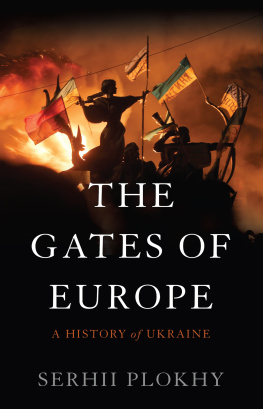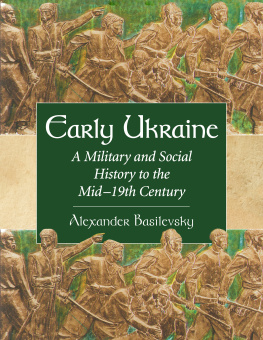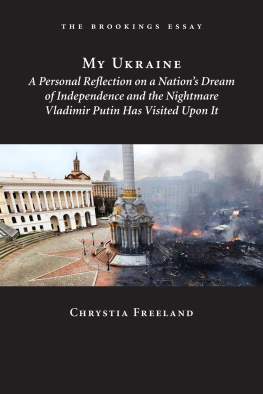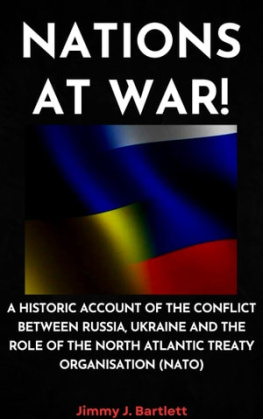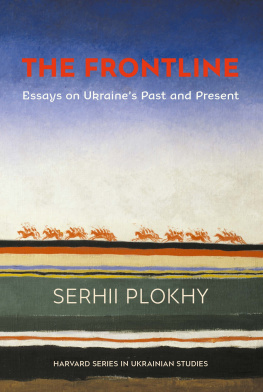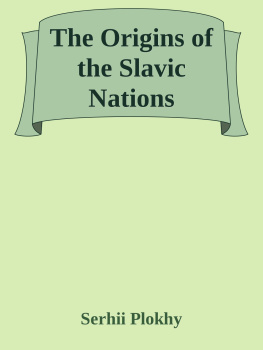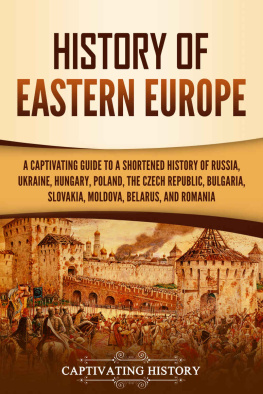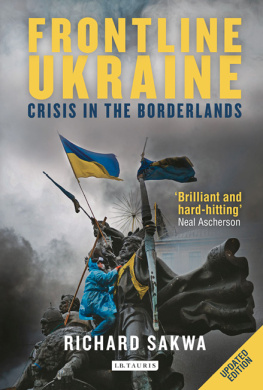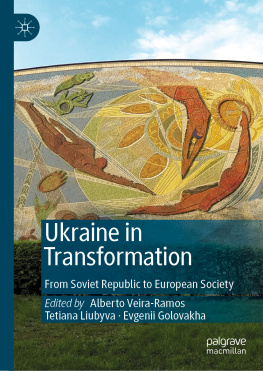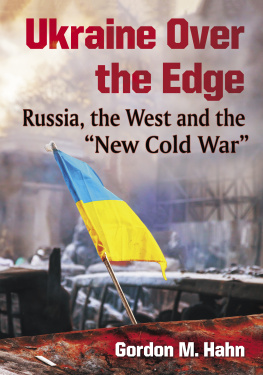Serhii Plokhy has produced a perfect new history of Ukraine for these troubled timesauthoritative and innovative, but always clear and accessible, and a delight to read.
Serhii Plokhy offers a short yet comprehensive history of Ukraine that contextualizes Mr. Putins current policies as aggression against the wishes of the Ukrainian people, as well as the order established at the end of the Cold War. A pleasure to read, The Gates of Europe will take those familiar with the Moscow narrative on a mind expanding tour of Ukraines past.
Copyright 2015 by Serhii Plokhy
Published by Basic Books,
A Member of the Perseus Books Group
All rights reserved. Printed in the United States of America. No part of this book may be reproduced in any manner whatsoever without written permission except in the case of brief quotations embodied in critical articles and reviews. For information, contact Basic Books, 250 West 57th Street, New York, NY 10107.
Books published by Basic Books are available at special discounts for bulk purchases in the United States by corporations, institutions, and other organizations. For more information, please contact the Special Markets Department at the Perseus Books Group, 2300 Chestnut Street, Suite 200, Philadelphia, PA 19103, or call (800) 810-4145, ext. 5000, or e-mail .
Designed by Trish Wilkinson
Set in 11-point Adobe Garamond Pro
Library of Congress Cataloging-in-Publication Data
Plokhy, Serhii, 1957
The gates of Europe : a history of Ukraine / Serhii Plokhy.
pages cm
Includes bibliographical references and index.
ISBN 978-0-465-07394-8 (ebook) 1. UkraineHistory. I. Title.
DK508.51.P55 2015
947.7dc232015015256
10 9 8 7 6 5 4 3 2 1
To the people of Ukraine
Contents
Chapter
Chapter
Chapter
Chapter
Chapter
Chapter
Chapter
Chapter
Chapter
Chapter
Chapter
Chapter
Chapter
Chapter
Chapter
Chapter
Chapter
Chapter
Chapter
Chapter
Chapter
Chapter
Chapter
Chapter
Chapter
Chapter
Chapter
U krainians probably have just as much right to brag about their role in changing the world as Scots and other nationalities about which books have been written asserting their claim to have shaped the course of human history. In December 1991, as Ukrainian citizens went to the polls en masse to vote for their independence, they also consigned the mighty Soviet Union to the dustbin of history. The events in Ukraine then had major international repercussions and did indeed change the course of history: the Soviet Union was dissolved one week after the Ukrainian referendum, and President George H. W. Bush declared the final victory of the West in the prolonged and exhausting Cold War.
The world next saw Ukraine on television screens in November 2004, when festive orange-clad crowds filled the squares and streets of Kyiv demanding fair elections and got their way. The Orange Revolution gave a common name to a number of color revolutions that shook authoritarian regimes from Serbia to Lebanon and from Georgia to Kyrgyzstan. The color revolutions did not change the post-Soviet world, but they left a lasting legacy and the hope that it would change one day. Ukrainians reappeared on the worlds television screens in November and December 2013, when they poured onto the streets of Kyiv once again, this time in support of closer ties with the European Union. At a time when enthusiasm for the European Union was at a low ebb among its member countries, the readiness of the Ukrainians to march and stay on the streets in subzero temperatures for days, weeks, and months surprised and inspired the citizens of western and central Europe.
Events in Ukraine took an unexpected and tragic turn in early 2014, when a confrontation between the protesters and government forces violently disrupted the festive, almost street-party atmosphere of the earlier protests. In full view of television cameras, riot police and government snipers opened fire, wounding and killing dozens of pro-European demonstrators in February 2014. The images shocked the world. So did the Russian annexation of the Crimea in March 2014 and, later that spring, Moscows campaign of hybrid warfare in the Donbas region of eastern Ukraine. In July, the downing by pro-Russian separatists of a Malaysian airliner with almost three hundred people on board turned the Russo-Ukrainian conflict into a truly international one. The developments in Ukraine had a major impact on European and world affairs, causing politicians to speak of a battle for the future of Europe and a return of the Cold War in the very part of the world where it had allegedly ended in 1991.
What has caused the Ukraine Crisis? What role does history play in those events? What differentiates Ukrainians from Russians? Who has the right to the Crimea and to eastern Ukraine? Why do Ukrainian actions have major international repercussions? Such questions, asked again and again in recent years, deserve comprehensive answers. To understand the trends underlying current events in Ukraine and their impact on the world, one has to examine their roots. That, in very general terms, is the main task of this book, which I have written in the hope that history can provide insights into the present and thereby influence the future. While it is difficult, if not impossible, to predict the outcome and long-term consequences of the current Ukraine Crisis or the future of Ukraine as a nation, the journey into history can help us make sense of the barrage of daily news reports, allowing us to react thoughtfully to events and thus shape their outcome.
This book presents the longue dure history of Ukraine from the times of Herodotus to the fall of the USSR and the current Russo-Ukrainian conflict. But how does one distill more than a millennium of the history of a place the size of France, which has close to 46 million citizens today and has had hundreds of millions over the course of its existence, into a couple of hundred pages? One has to pick and choose, as historians have always done. Their approaches, however, differ. The founder of modern Ukrainian historiography, Mykhailo Hrushevsky (18661934), who is a character in this book and the scholar for whom the chair of Ukrainian history at Harvard University is named, regarded his subject as the history of a nation that had existed since time immemorial and known periods of flourishing, decline, and revival, the latter culminating in the creation of Ukrainian statehood in the course and aftermath of World War I.

